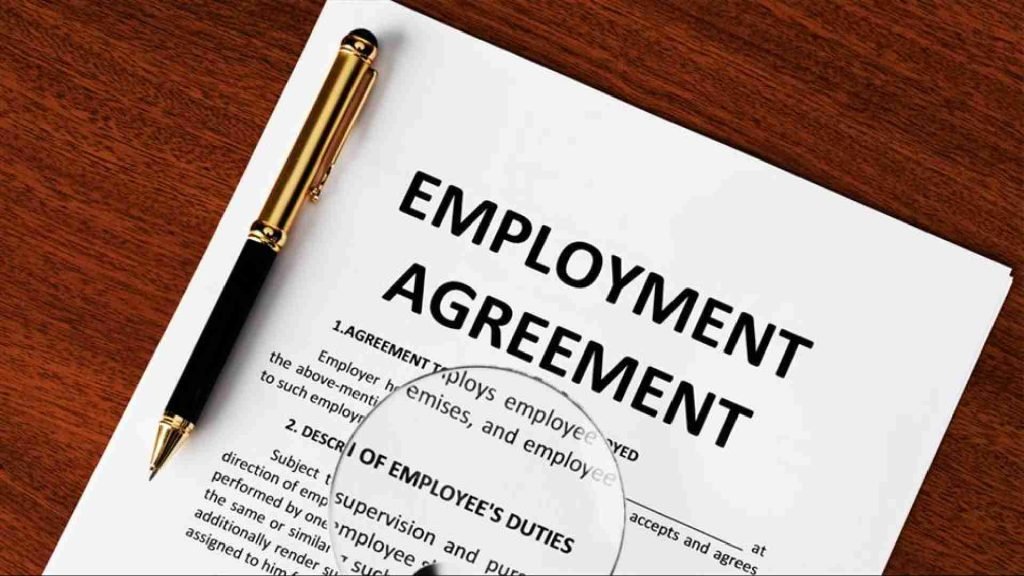If you’re working in the UAE or planning to start soon, there’s important news about job contracts you should know. The UAE government has recently made big changes to how employment contracts work—and these updates affect both companies and workers across the country. Whether you’ve just joined a new job or have been working here for years, it’s important to understand what’s changing, why it’s happening, and how it will affect you.
What’s Changing in Employment Contracts?
The biggest change is that all job contracts in the UAE must now be fixed-term contracts. This means open-ended or unlimited contracts, which had no clear end date, are no longer allowed. Instead, every contract must clearly state when it starts and when it ends.
The government introduced this rule as part of the UAE Labour Law update (Federal Decree-Law No. 33 of 2021), which came into effect in February 2022. However, companies and workers were given some time to adjust.

Now, that deadline is here. By the end of 2023, all companies must shift their employees to fixed-term contracts—no exceptions. If a company doesn’t follow this rule, it could face legal penalties.
Why Are These Changes Happening?
The UAE is constantly working on improving its labour market. These changes are part of a larger plan to make the system more flexible, fair, and efficient. By using fixed-term contracts, the government hopes to:

- Protect employee rights more clearly
- Help companies plan better for the future
- Encourage short-term and project-based jobs
- Make the UAE’s work environment more attractive to global talent
It’s all about keeping up with modern work trends while also giving workers the clarity and security they need.
What Is a Fixed-Term Contract?

A fixed-term contract is a job agreement that clearly states the start date and end date of the job. It is signed by both the employee and the employer. It must include:
- The duration of the contract (for example, 1 year or 3 years)
- Salary details
- Job responsibilities
- Working hours
- Leave entitlements
- And any termination conditions
The current rule allows fixed-term contracts of up to 3 years. After that, the contract can be renewed or extended for the same or a shorter period.
What Happens to Old Unlimited Contracts?
If you signed an unlimited contract before 2022, your employer must now change it to a fixed-term one. This doesn’t mean you’re losing your job—it just means your agreement will now have an end date, which can be renewed when needed.
The employer cannot reduce your salary or benefits when changing the contract. In fact, your rights stay protected, including end-of-service benefits and annual leave. If you’re unsure about the change, it’s always a good idea to ask your HR department for a copy of your new contract and review it carefully.
What If My Employer Hasn’t Changed My Contract Yet?
The deadline to switch to fixed-term contracts was December 31, 2023. If your company hasn’t done that yet, they are not following the law. You can raise the issue with your HR department or even file a complaint with the Ministry of Human Resources and Emiratisation (MOHRE).
It’s in the best interest of companies to comply, as failing to update contracts can result in fines or legal action.
Can a Fixed-Term Contract Be Ended Early?
Yes, either the employer or the employee can end a fixed-term contract before the end date. But they must follow the proper rules, such as:
- Giving the required notice period (usually 30 days)
- Providing a valid reason for ending the contract
- Possibly paying compensation, depending on the case
This prevents sudden terminations and protects both sides. If the contract is ended wrongly, the affected person can file a case and may receive compensation.

What If I Want to Leave Before My Contract Ends?
If you’re an employee and want to resign before your contract ends, you can do that—but you must follow the rules in your contract. That includes giving proper notice (usually one month). If you leave without notice or a good reason, you might be asked to pay compensation or even face a labour ban for a year.
So, it’s always best to speak to your employer and leave on good terms.
What About Gratuity and Benefits?
Don’t worry—end-of-service benefits (gratuity), annual leave, sick leave, and other benefits still apply under fixed-term contracts. In fact, the law makes it clear that your rights remain protected.
Your gratuity will be calculated based on the number of years you’ve worked and your basic salary, just like before. So even though the contract format is changing, your key rights are not being taken away.
Does This Apply to All Workers?
Yes. These changes apply to:
- Private sector workers (onshore and free zone, unless otherwise stated)
- Skilled and unskilled workers
- Part-time employees
However, government employees may follow a different system depending on the authority they work under.
How Is This Good for Workers?
While the idea of a fixed-term contract might sound risky to some, it actually brings several benefits:
- You’ll know exactly how long your job will last
- You’ll have a clear agreement in writing
- Your employer must follow set rules for termination and renewal
- You can negotiate better terms when the contract ends
It gives both sides clarity and structure. And in a growing job market like the UAE’s, that’s a positive thing.
Final Thoughts
The UAE continues to push for a more modern, fair, and dynamic job environment. The move to fixed-term employment contracts is a big part of that vision. It may take some time to get used to, but the goal is to create a better work-life structure for everyone.
If you’re working in the UAE, take a moment to review your employment contract. Ask questions. Stay informed. And make sure your job terms match the latest rules. These changes aren’t just about paperwork—they’re about your rights, your security, and your future in the workplace.
Also read: UAE Banks Are Transforming: What This Means for You












